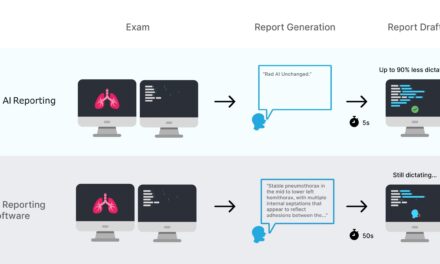While adoption is in early stages, executives view artificial intelligence as a way to reduce claim denials, speed up cash flow, and ease administrative burdens.
A new survey of healthcare executives indicates that hospital and health system leaders are looking to artificial intelligence (AI) to address persistent financial and administrative challenges, despite adoption of the technology being in its early phases. The inaugural AI in Revenue Cycle Management (RCM) National Survey was conducted by Smarter Technologies in partnership with Modern Healthcare.
The findings suggest that as issues like staffing shortages and rising claim denial rates continue to place a heavy administrative load on providers, many in leadership view AI as a potential solution. The survey highlights that executives see a clear path for using AI to reduce denials, improve cash flow, and allow clinical staff to focus more on patient care.
Key Survey Findings:
The 2025 AI in RCM National Survey highlights both the promise and challenges of AI adoption:
- Strong provider representation: 76% of respondents came from provider organizations—including health systems (29%), hospitals (25%), and medical clinics/groups (22%).
- Leadership-level input: Two-thirds (66%) of respondents were director-level or higher, providing an executive perspective on AI adoption in RCM.
- AI adoption is emerging, but not yet widespread: Nearly three in five organizations (57%) reported implementing some level of AI in RCM, ranging from pilot use cases to moderate deployment.
- Top Barriers: Respondents cited data security and patient privacy concerns (51%), lack of integration with legacy systems (45%), and insufficient ROI demonstration (34%) as leading barriers to AI adoption.
- Operational Stress Points: Claims denial management (54%) and prior authorization (47%) were identified as the most burdensome functions, where leaders see AI as a strong opportunity for impact.
- AI Priorities: Over the next 12–18 months, nearly half (47%) of respondents reported they are actively exploring AI opportunities, while 36% are either piloting or expanding AI programs. Only 11% said AI is not a strategic priority.
- Resource Allocation: Almost half of respondents (49%) dedicate less than 10% of their annual technology budget to AI and automation initiatives—underscoring low early-stage investment despite growing interest.
Insights for Hospital and Health System Leaders
The findings offer a roadmap for healthcare executives considering AI as part of their revenue cycle strategy. With staffing shortages and rising denial rates continuing to increase administrative burdens on providers, hospital leaders view AI as a pathway to:
- Reduce administrative burden on staff (47%)
- Achieve faster, predictable cash flow (38%)
- Eliminate preventable denials (31%)
“Hospital and health system leaders know administrative costs and revenue cycle inefficiencies drain valuable resources from patient care,” says Mike Gao, MD, president of Smarter Technologies, in a release. “This survey validates that while AI adoption is still in its early phases, executives see clear potential to use AI to reduce denials, speed up cash flow, and enable staff to focus on providing care to patients.”
The 2025 survey was conducted by Signet Research, Inc. between June 23, 2025, and Aug 11, 2025. More than 100 healthcare executives and professionals from a representative sample of US provider organizations responded to an email invitation distributed to Modern Healthcare subscribers. According to the release, the survey has a margin of error of +/- 9.1% at the 95% confidence level.
ID 177278738 © BiancoBlue | Dreamstime.com





